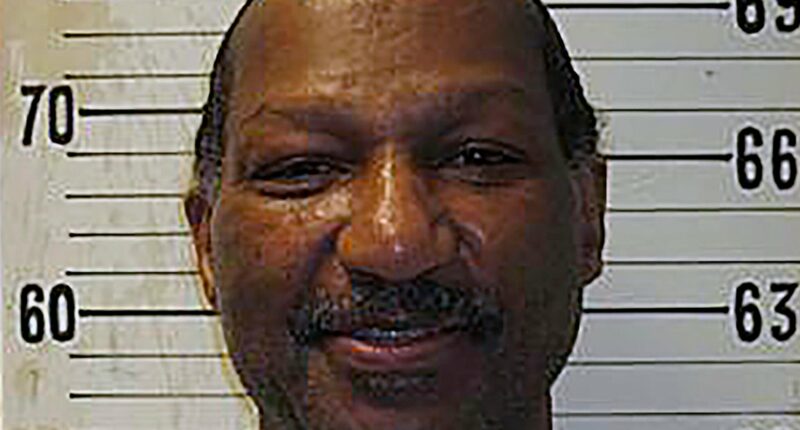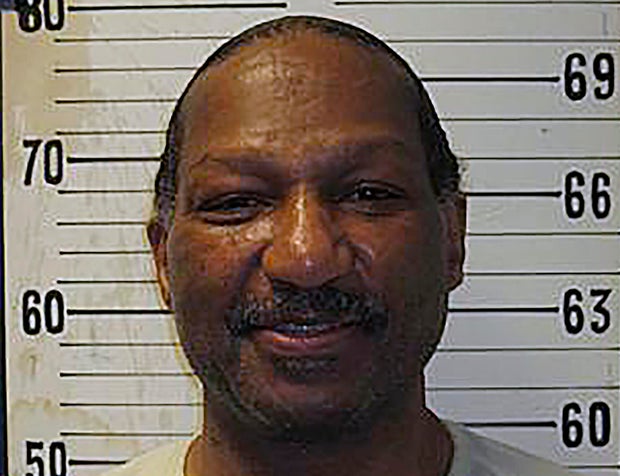Share this @internewscast.com
A judge in Tennessee has ruled that the heart-regulating device implanted in a death-row inmate must be deactivated to prevent it from potentially shocking him during his execution by lethal injection.
Nashville Chancellor Russell Perkins issued the order in preparation for Byron Black’s scheduled execution on August 5. Black’s legal team has argued that the implantable cardioverter-defibrillator might attempt to restore Black’s heart rhythm during the lethal injection of pentobarbital, possibly causing multiple shocks and resulting in significant pain and suffering.
The court directed the state to deactivate the device seconds before the lethal injection is administered. This includes ensuring the presence of medical professionals or certified technicians along with the necessary equipment. The judge noted that this order would not delay the execution, as he lacks the authority to postpone it, and added that it does not impose an excessive administrative or logistical burden on the state.
Black’s attorneys say the only surefire way to shut off the device is for a doctor to place a programming device over the implant site, sending it a deactivation command. It is unclear how quickly the state could find a medical professional willing to do the deactivation. Additionally, the state is almost certain to file a quick appeal.
This latest ruling comes after extensive back-and-forth between Tennessee officials and Black’s legal team, who have argued in a number of court filings that their client’s cognitive disabilities mean he isn’t competent for execution. One of them was a request sent to Tennessee Gov. Bill Lee for Black’s clemency, asking the governor to commute his sentence to life in prison.
“Mr. Black, who lives with an intellectual disability, has been on death row for 25 years,” the letter read. “From infancy, he suffered from the effects of prenatal alcohol exposure, resulting in Fetal Alcohol Syndrome. As a toddler, he was exposed to toxic lead, compounding his lifelong cognitive and developmental impairments.”
/ AP
Now 69 and wheelchair-bound, Black suffers from dementia, multiple organ failures, including heart failure, diabetes and prostate cancer, according to his attorneys, who also noted in their clemency request that the inmate has an implanted device to regulate his heart.
The implantable cardioverter-defibrillator is a small, battery-powered electronic instrument that is surgically implanted in someone’s chest, usually near the left collarbone. Black’s was inserted in May 2024. It serves as a pacemaker and an emergency defibrillator. At a two-day hearing this week, experts offered clashing testimony on how it would act during the execution and what Black could feel if he is shocked.
Attorneys for the state deemed it highly unlikely that the pentobarbital would trigger the device’s defibrillating function, and if it did, they say he would be unconscious and unaware, and unable to perceive pain. The state also said the lower-court judge lacked authority to order the device disabled.
Black’s attorneys say the state is relying on studies that confuse unawareness with unresponsiveness. The inmate’s team says research shows pentobarbital renders people unresponsive and causes them to experience amnesia after they undergo an operation, but it doesn’t make them unaware or unable to feel pain..
Kelley Henry, an attorney for Black, said she is relieved by the ruling.
“It’s horrifying to think about this frail old man being shocked over and over as the device attempts to restore his heart’s rhythm even as the State works to kill him,” Henry said in a statement. “Today’s ruling averts that torturous outcome.”
A Tennessee attorney general’s office spokesperson did not immediately respond to requests for comment Friday evening. Its previous filings say Black is trying to further delay justice for brutal murders.
Black was convicted in the 1988 shooting deaths of girlfriend Angela Clay, 29, and her two daughters, Latoya, 9, and Lakeisha, 6. Prosecutors said Black was in a jealous rage when he shot the three at their home. At the time, Black was on work-release while serving time for shooting and wounding Clay’s estranged husband.
Black has already seen three execution dates come and go, thanks to the COVID-19 pandemic and a pause on executions from Gov. Bill Lee after the Department of Correction was found to not be testing the execution drugs for potency and purity as required. Black’s execution would be the second one under a pentobarbital protocol released in December.
Black is intellectually disabled, attorneys say
If Black’s attorneys could prove their client’s intellectual disability, executing him would violate Tennessee’s Constitution. But the state Supreme Court recently declined to order a hearing over whether he is incompetent to be executed. A U.S. Supreme Court effort remains pending.
The clemency request also said Black would have been spared the execution under a 2021 state law if he had delayed filing his intellectual disability claim.
“If this execution is allowed to move forward, Mr. Black will be the first intellectually disabled person executed by Tennessee in the modern era of the death penalty,” his attorneys wrote in that filing.
Black’s motion related to his heart device came within a general challenge he and other death row inmates filed against the state’s new execution protocol. The trial isn’t until 2026.


















